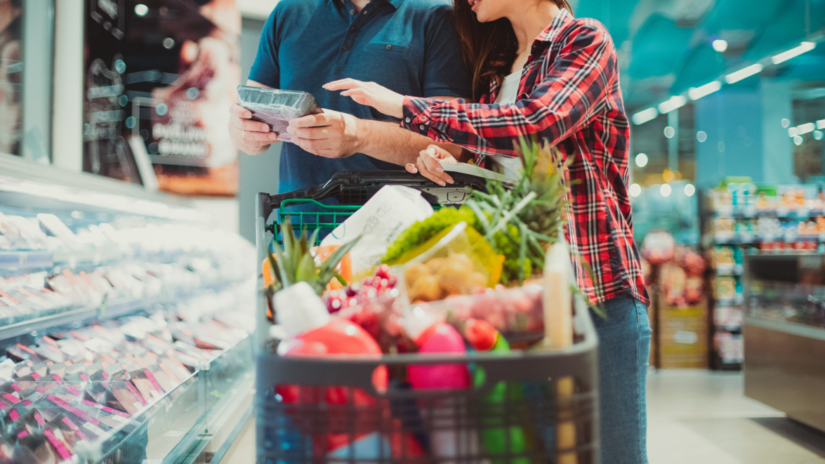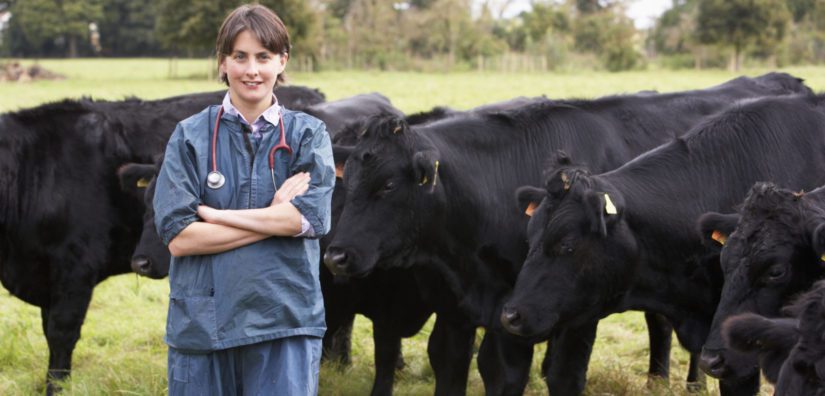Food labels are often one of the only places you can learn more about where your food comes from. If you eat meat, eggs or dairy and want to make humane choices, it’s important to understand what food labels mean.
The Canadian Food Inspection Agency (CFIA) is responsible for labelling requirements of food in Canada, and they set guidelines for what claims and statements can be used. While guidelines are in place, there is still room for consumers to be misled.
Here are some common food labels that might not mean what you think.

1. Natural claims
The word “natural” may lead you to believe that the animal was raised outdoors. However, CFIA’s definition of “natural” has nothing to do with how the animal was raised. Instead, it relates to the food product itself after processing. This claim can only be used if the food does not contain added vitamins, minerals, artificial flavours or food additives, and its original look and form has not been significantly changed. This label has nothing to do with animal welfare.
2. Feed claims
Labels such as “fed no animal products” or “vegetable-fed,” often found on eggs, do not mean the hens lived a better life. On the other hand, the labels “grass-fed” or “grass-fed and finished” do mean that the animals were raised outdoors on pasture, which is good for animal welfare. This term is most often found on beef, dairy or lamb.
An animal’s welfare cannot be summed up by one simple feed claim. A nutritious diet is only one aspect of good welfare, and these claims do not consider whether other animal needs like veterinary care, social contact or adequate space were provided.
3. Antibiotic claims
The labels “antibiotic-free” or “raised without the use of antibiotics” may lead us to believe that animals on the farm were well-cared for and remained healthy throughout their lives, not needing antibiotics. However, this is not always the case. While the label does mean the animals were never given antibiotics, it does not mean the animals never got sick. In reality, they may still have gotten sick, but were not given antibiotics as treatment to get well again. While it is important to use antibiotics only when needed, sick animals deserve treatment. No animal welfare improvements are guaranteed when you see this claim on a food label.
To say a food is “antibiotic-free” is also misleading because, by law, all food must be free of antibiotics. Learn more about antibiotic use in farming.

4. Hormone claims
The claim “hormone-free” can be misleading to consumers as it gives the impression that the product does not contain hormones. The truth is that hormones occur naturally in all animals’ bodies.
It is illegal to give growth-promoting hormones to most farm animals in Canada. In animals where it is legal to use hormones, such as beef cattle, the label “raised without the use of added hormones” would be more accurate. This label is meaningless for eggs, turkey, chicken, pork and dairy products, where using growth-promoting hormones is prohibited. Keep in mind that this is another label that doesn’t mean the animals were raised to higher standards of care.
5. Animal friendly claims
Labels such as “animal friendly”, “humanely raised”, and “animal care certified” may lead you to believe the animals were raised to higher standards of welfare. In reality, these labels are not regulated by the CFIA, meaning there is no criteria that needs to be met to display these claims. Therefore, these labels do not offer better treatment for animals – they are only used to make foods sound better to you, the buyer.
What should I buy?
Third-party certification programs like Animal Welfare Approved, Certified Humane, Global Animal Partnership and Organic certify farms that raise animals to higher standards of care than the minimum required in Canada’s Codes of Practice. The programs verify their standards are being met through independent inspections of the farms. Certification with these programs ensures you get what you pay for when it comes to farm animal care. Be sure to look for the following logos:

To continue decoding the good, the bad and the ugly of food labels, check out our more comprehensive food labeling guide, or get in touch with our farm animal welfare team if you have questions.
Stay in touch
Want to stay up to date on more stories like this? Use the form below to subscribe to our FarmSense e-newsletter! Four times per year, you will receive news and information on what the BC SPCA is doing to help improve farm animal welfare.
The BC SPCA uses your personal information to update you on our work for animals as well as for advertising and analytics purposes. More information on uses and how to opt-out can be found in our Privacy Policy.
